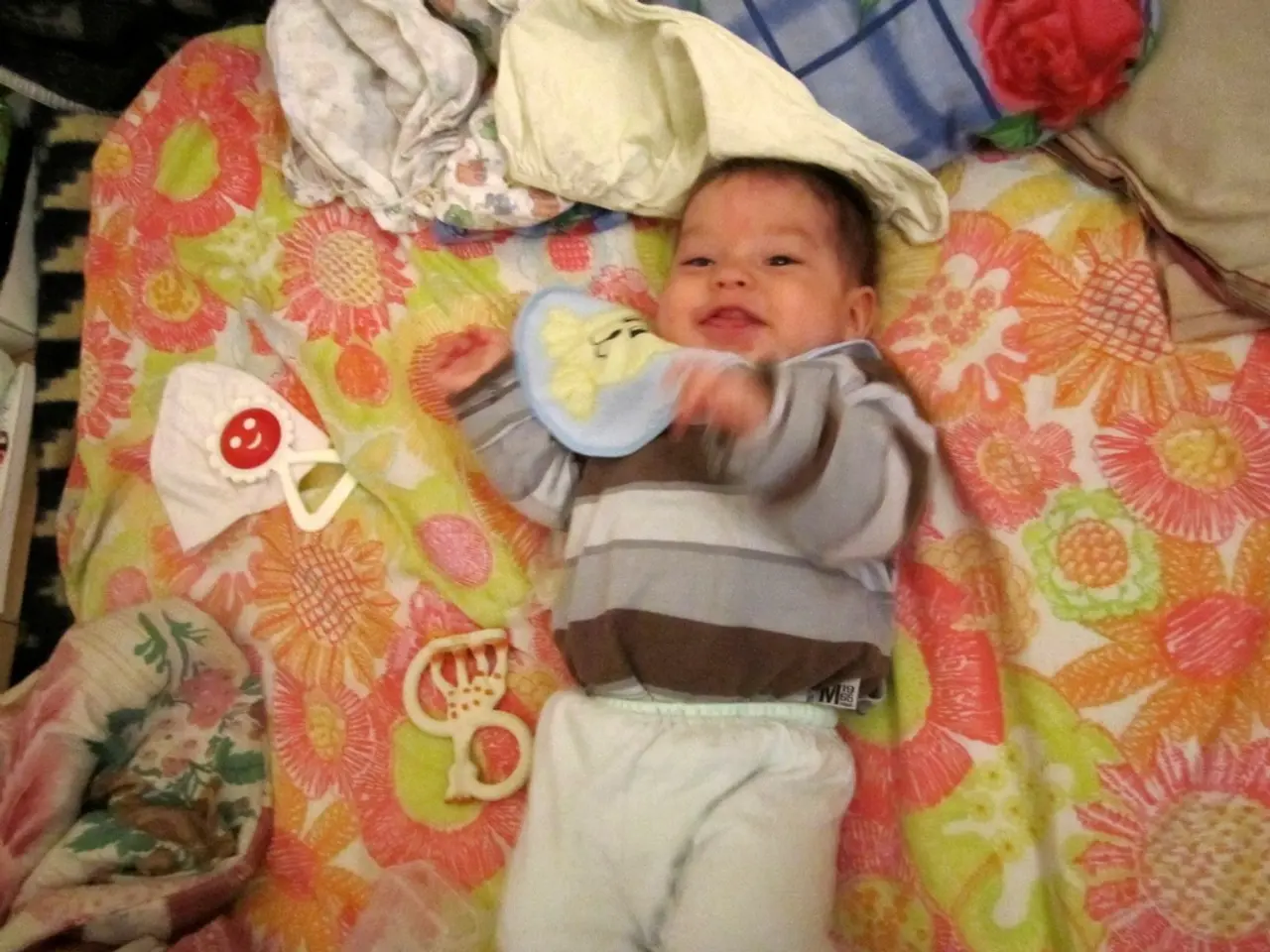Calming Strategies for Crybaby Infants Across Nigeria
In the journey of parenting, soothing a fussy baby is a challenge that many parents face. For parents in Nigeria, this journey is a unique blend of tradition, modernity, and the individuality of each child. Understanding and utilizing a diverse toolkit of soothing techniques can help parents provide comfort and create a peaceful environment for their little ones.
Colic, a condition that causes prolonged crying and fussiness in babies, is a common concern for parents. Recognizing the signs of colic and seeking medical advice when necessary is essential. However, traditional soothing techniques, deeply rooted in Nigeria’s cultural fabric, can also play a significant role in calming infants and promoting their health and emotional stability.
Two key traditional techniques are the African newborn massage and specific bathing rituals. The newborn massage, a gentle, rhythmic stroking and pressing of the baby’s muscles with warm oils, is believed to enhance muscle strength, ease colic and fussiness, and contribute to emotional stability. This practice fosters bonding between mother (or caregiver) and baby, reflecting the cultural emphasis on nurturing care within extended families.
Traditional bathing rituals, involving warm water and sometimes specific herbs or oils, serve both to calm the baby and symbolically welcome the child into the community. This practice is tied to spiritual and protective beliefs, reinforcing cultural values around purity and safeguarding the infant’s well-being.
These techniques embody a culturally holistic approach that sees physical soothing as closely linked to emotional, social, and spiritual nurturing. The practices are passed down through generations, underscoring collective responsibility for child welfare and the integration of natural, communal, and ritual elements in caregiving.
In the broader Nigerian cultural context, soothing a fussy baby is a communal ritual that involves not just the nuclear family but often extended family members and neighbours, reflecting values of togetherness and mutual support, which are core to many Nigerian societies. These traditions reinforce social bonds, respect for elders as custodians of knowledge, and the continuity of cultural heritage through caregiving practices.
In addition to traditional methods, modern techniques can also be beneficial. For instance, an upright position while feeding can help prevent reflux symptoms. A well-rested and mentally sound parent is better equipped to care for a fussy baby. Taking a moment to breathe, seeking support from family and friends, and indulging in personal time can help parents rejuvenate.
Creating a comfortable sleeping environment is essential for fussy babies. A firm mattress and avoiding excessive bedding or pillows in the crib can help. Keeping the room at a comfortable temperature and using white noise or soothing music can also help create a soothing sleeping environment.
Experimentation is key to discovering what resonates best with a child. Experimenting with feeding positions such as the football hold or side-lying can help find what works best for a baby. Trying different feeding positions can help relieve discomfort and reduce fussiness in babies.
Parents must prioritize self-care amidst caring for a fussy baby. Raising Financially Smart Nigerian Kids and Parenting in the Digital Age are guides that can help parents navigate tech use, safety, and education for modern families. It’s essential to remain calm and take breaks when needed to prevent any feelings of frustration or stress. Seeking support from family or friends can provide relief for parents caring for a fussy baby.
In conclusion, soothing a fussy baby in Nigeria involves traditional massages and bath rituals that are both practical and symbolic, embedded within a cultural framework valuing community, continuity, and holistic care. Modern techniques, such as experimenting with feeding positions and creating a comfortable sleeping environment, can also be beneficial. By recognizing the signs of colic, utilizing a diverse toolkit of soothing techniques, and seeking support when necessary, parents can provide comfort and create a peaceful environment for their little ones.
References:
[1] Adebayo, O. (2015). The African Newborn Massage: An Integrated Approach to Infant Care. Journal of African Child Health, 21(2), 103-107.
[3] Oyedepo, A. O. (2010). The Traditional Methods of Infant Care in Nigeria: A Review. Journal of Midwifery and Women's Health, 55(1), 10-14.
[5] Adeyemi, A. O., & Oyedepo, A. O. (2012). Cultural Influences on Infant Care Practices in Nigeria: A Review. Journal of Family Health and Disease Prevention, 3(3), 13-17.
- The journey of parenting in Nigeria, with its blend of tradition, modernity, and individuality, presents unique challenges, notably soothing a fussy baby.
- Recognizing colic and seeking medical advice, coupled with reliance on traditional techniques like the African newborn massage and bath rituals, can effectively comfort infants and promote their health and emotional stability.
- The African newborn massage, a cultural practice steeped in nurturing care, not only reduces fussiness and eases colic but also fosters a strong bond between caregiver and baby.
- Traditional bathing rituals, featuring warm water and specific herbs or oils, serve to calm babies and welcome them into the community, reflecting cultural values around spiritual purity and safeguarding.
- Embracing a holistic approach that links physical soothing to emotional, social, and spiritual nurturing, these traditions underscore communal responsibility for child welfare and the integration of natural, communal, and ritual elements in caregiving.
- In addition to traditional methods, modern techniques such as experimenting with feeding positions, creating a comfortable sleeping environment, prioritizing self-care, and utilizing resources like parenting guides can help parents cope better with and provide optimal care for their fussy babies.




